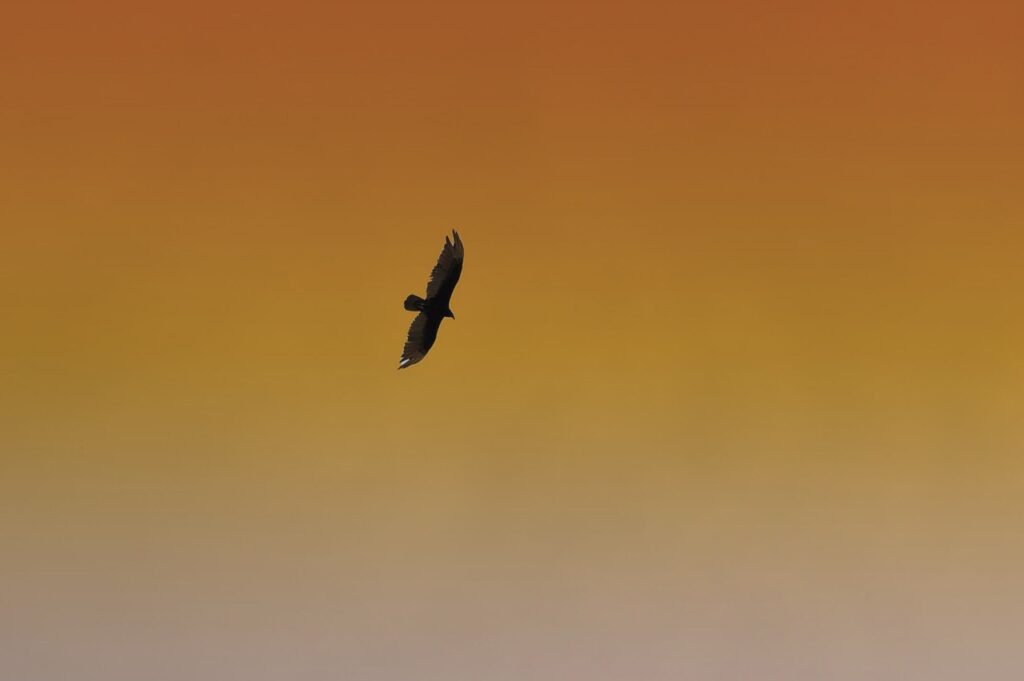Word prompts are short, fun ways to get your imaginative writing flowing!
When I delved into the world of imaginative writing for the first time, writer’s block was a problem. Not having the tools needed to help me achieve my creative vision was, too, a problem.
RELATED: 30 Tools For The Imaginative Writer
This was back when I was a kid, and when I didn’t know all that much about how to improve my writing. What I decided to do (before I knew writing prompts were a thing) was to search through the dictionary for interesting words. Props to my 4th-year primary school teacher for that one (thanks Miss Nayyer!).
And when I sat down to write a piece of fiction I am currently still working on, this was the very tactic I used to kickstart my creative vision for my imaginative writing. Today, I know them as word prompts.
Why Use Word Prompts For Imaginative Writing?
Word prompts are, for me, more effective at stimulating the imagination because it doesn’t force you down a particular path. Writing prompts tend to be about an idea, a setting, a person, or a situation. While this is awesome in its own right, it can limit the imagination to a certain context. This can work spectacularly well for micro fiction or flash fiction for certain genres.
But for those wanting more creative freedom and more ‘leash’ so to speak, this is where I feel word prompts are the superior choice for imaginative writing.
What I found is that word prompts are a good way of forcing you to think more about what you want to write. But they are still effective at giving you a nudge. Similar to writing prompts, just leaving more wiggle room for your imagination to run with any ideas!
With that in mind, it is time to get this list started. I wanted to create an extensive list that can act as a long-term go-to resource for all your imaginative writing needs. The general idea is to use the word prompt to write about where your mind goes.
So, let’s get started!
Word Prompts 1 – 10

1. Sonder – Sonder is described as the realization that a person makes that every individual they pass, even for just a moment, is likely leading a life just as, if not more so, complicated than their own.
2. Megalopolis – A megalopolis is a vast network of towns, villages, and cities. It is usually described as a huge urban complex.
3. Tort – Tort is a word used to describe wrongdoing in the field of law. Typically, a tort is an action described as wrongdoing that can enable a person to claim damages.
4. Nihilism – Nihilism is a school of philosophy. It is centered around the idea that all values are inherently baseless and that nothing can truly be known, much less communicated.
5. Ennui – This is a word used to describe the feeling of being bored, specifically by something tedious.
6. Nachlass – Nachlass is a German word that is used to describe a collection of notes, workings, papers, and research that is left in the wake of a scholar’s death.
7. Palaestra – A palaestra was a place in Rome (a public one) where wrestlers and athletes would train.
8. Aikido – A Japanese martial art focused on the principles of the sanctity of life, re-direction, and peace.
9. Papyrus – Paper that was made by the ancient Egyptians using fibers from the Papyrus plant.
10. Creed – A word used to describe any system of beliefs.
Word Prompts 11 – 20

11. Odium – A word used to describe a widespread hatred for someone.
12. Vagary – An unusual, wild idea that comes to mind. Usually on a whim.
13. Hodophile – A person that loves to travel, so much so that it is all they want to do.
14. Bonnie – A word from the Scots language meaning beautiful.
15. Pannotia – A supercontinent that formed early in Earth’s history. Also known as the Vendian supercontinent, Greater Gondwana, or the Pan-African supercontinent.
16. Cynosure – A word used to describe someone or something that strongly attracts attention, and admiration, or is a point of interest for many.
17. Sisyphean – Used to describe something that takes a lot of effort but is futile.
18. Poikilotherm – An animal that has its body temperature defined by its surroundings. Its temperature varies with the overall room/environment temperature.
19. Schema – Another word used to describe a plan or schematic.
20. Assyrian – An extinct language used by the Assyrians of ancient Mesopotamia.
Word Prompts 21 – 30

21. Hypertrophey – When a body part or organ becomes unusually enlarged.
22. Serer – A West African language that is closely related to that of Fula. It is primarily spoken in Gambia and Senegal.
23. Cultivar – A plant developed from a naturally occurring plant species that has been cultivated and maintained in this status of cultivation.
24. Lexicography – The act and task of writing as well as updating dictionaries.
25. Graphomania – This is one a lot of imaginative writers will get from time to time! This is the compulsion to write. A sudden urge to write suddenly comes over you without warning.
25. Journalese – The writing style employed in newspapers. This word can be used to describe how newspapers are written.
26. Quercitron – A rare colour of yellow pigmentation that is only found in the Quercus velutina. A tree (black oak) native to Eastern and Midwestern North America.
27. Grangerize – The act of illustrating a book by putting in drawings, prints, and so on from other books/works.
28. Ostensible – A word used to describe something, someone, or an idea that appears as something it is not. To pretend.
29. Sempiternal – Another word to describe something that doesn’t end, or is eternal.
30. Ambrosial – This word can be used to describe something as being worthy of a god. It is usually used to describe a taste as immensely sweet.
Word Prompts 31 – 40

31. Goose-necking – A term used in the Southern States of the United States (a slang word) to describe someone or something trying to squeeze into an area or place they are not welcome.
32. Thanatos – This word is used to describe an unconscious state of wanting to die. It is also, in Greek Mythology, the personification of death itself.
33. Nova – A nova (not to be confused with a supernova) is a star that has ejected some of its material to form a cloud around itself. This process makes the star brighter in the sky.
34. Epithet – Another word to describe profanity. However, it is more commonly used to describe abusive words or phrases.
35. Matronymic – This word is used to describe the process of naming that derives from the mother, or maternal line, of a family (being named after your mother, or maternal grandmother).
36. Archaism – This is a word used to describe the use of an old, archaic term.
37. Cannonade – During the use of cannons in military engagements, a cannonade was a word used to describe consistent, unrelenting, intense cannon fire.
38. Somniloquy – This is the act of uttering speech while you are still fast asleep. Maybe get a recorder? Who knows what ideas you might stumble upon for your imaginative writing?
39. Oneironaut – Oneironautics is the act of being able to travel during your sleep in a conscious matter, making an Oneironaut a person that does so. What would you go and see?
40. Googol – No not the search engine Google. We are referring to a Googol, a number in maths. Its exact figure is 10^100 (10 to the power of 100). A Googol is often regarded as the number by which anything greater would not have any practical applications in the real world.
Word Prompts 41 – 50

41. Scriptorium – A scriptorium is a room inside a monastery that is dedicated to the writing and copying of manuscripts; usually religious but not strictly so.
42. Diaspora – This word is used to describe when something that was originally localized to a specific area is spread out across a new region. Examples could be people of a certain ethnicity, culture, or a certain language.
43. Indigen/Indigene – A person that was born in a specific place to which they would be a native. For example, I would be an indigen of Scotland!
44. Daub – A daub is generally speaking an unskilled painting. A trainee artist could produce daubs.
45. Homiletics – Homiletics is a word used, primarily in theology, to describe the processes of and perhaps a person’s dedication to preaching.
46. Vista – Vista is a word used to describe a very beautiful view, usually viewed from a place high up.
47. Strabismus – This word is used to describe when someone’s eyes are misaligned. It can occur in one, or both eyes, to different degrees.
48. Mesa – A mesa is an area of land that is flat with steep edges (usually defined as tableland).
49. Azure – A colour described as a blue hue crossed with purple hints. A clear October sky at dusk can sometimes be described as Azure.
50. Lowlight – Lowlight is the opposite of highlight, but is usually used to describe a particularly bad event that happens to a person or group of people.
Word Prompts 51 – 60

51. Sylvan – This is the name given to a spirit that resides within a woodland, or at the very least, frequents a wooded area.
52. Idyll – A poem that relates to or describes rural life. This word can also be sued to refer to ballads about rural life.
53. Infravision – This is the ability of humans to see in the dark. However, infravision is usually reserved for those that have exceptional eyesight in the dark, or have eyesight so good in dire lighting conditions that their sight is considered almost superhuman.
54. Harrier – A harrier is a type of large hawk that hunts small terrestrial animals in meadows and marshes. The word can also be used to describe something or someone that is a persistent attacker.
55. Faery – The supposed mythical, enchanted realm that fairies call home. Also a synonym or alternative spelling for a fairy in folklore.
56. Mufti – This has two varying meanings, depending on nation and culture. Mufti is more commonly known as a person that interprets Muslim law (jurist). However, mufti can also refer to mufti clothing; another way of saying casual clothing. For example, a mufti day could be described as a casual clothes day where a uniform would normally be worn.
57. Recondite – This word can be used to describe something as difficult to penetrate. In regards to knowledge, the word can be used to describe something or someone as difficult to understand or grasp.
58. Praxis – This word is used to describe translating an idea you have into action. For example, for imaginative writing, you may translate one of these word prompts into a flash fiction idea.
59. Edlritch – Eldritch is a synonym for something spooky, eerie, or unsettling.
60. Epoch – A word that is used to describe a time. While it can refer to a human life or a section of someone’s life, it is more commonly used to refer to a huge period of time; generally in the scale of thousands or millions of years.
Word Prompts 61 – 70

61. Supine – This word is used to describe when someone appears to be genuine but in reality, cannot be trusted. It can also be used to describe an idea or falsehood that does the same thing.
62. Lissome – This is the act of a person or object that can move with grace but also with great ease. For example, a ballerina.
63. Resol – A word used to describe when sunlight reflects off of a surface.
64. Glen – A Scots word for a hill, or mountain.
65. Viridity – This word is usually attributed to people that have a nieve form of innocence about them.
66. Aeonian – When something is described as being aeonian it is eternal.
67. Kalon – A beauty that extends deeper than just looks; to the morality of an individual. This word is derived from Greek philosophy.
68. Ikigai – This is the name of a Japanese principle. The concept of having Ikigai is to have a direction or purpose in one’s life that provides satisfaction and fulfillment.
69. Dern – Dern is used to describe something hidden or kept secret. In some cases, it can be used to describe hidden feelings that a person may have. It can also refer to a secret or hidden place.
70. Psychomachy – Psychomachy is used to describe a state where a person is suffering from an internal conflict of the soul and mind.
Word Prompts 71 – 80

71. Mesonoxian – A word used to describe something of or related to midnight. For example, an obscure cult could have a mesonoxian ritual.
72. Noetics – Noetics is a branch of philosophy dealing with the study of the mind. The word derives from Greek origins.
73. Celestial – Celestial is a word used to refer to something otherworldly, or godly. It can refer to a divine being or place beyond our physical world – usually with religious connotations.
74. Ardor – Ardor can be sued to describe a feeling of inner emotional warmth or passion. It is often tied to the emotion of love but doesn’t necessarily need to be.
75. Sonorous – The word given to a place capable of producing a very deep, resonant sound. This sound is usually very loud also. A cave could be described as giving off a sonorous sound.
76. Geodesy – In geology, Geodesy is the study of the shape of the Earth and how certain landmasses came to be located where they are currently located.
77. Bucolic – This word relates to the countryside, but more specifically can be used as the name given to short poems about country life. The connotations of the word are usually around an idyllic country life.
78. Sward – A surface layer of the ground that is particularly grassy, or contains a network of grassroots/heavy grass coverage. A front lawn could be described as a sward if slightly overgrown.
79. Filicide – The act of murdering your son, daughter, or child.
80. Elephantine – Elephantine can be used to describe something or someone that has an enormous size or formidable strength.
Word Prompts 81 – 90

81. Planemo – Planemo is a term used in astronomy and astrophysics to define a planetary-mass object that never undergoes the process of fusion. For example, unlike Stars.
82. Malefic – This word can be used in your imaginative writing to describe someone or something as having, or possibly exerting, a malignant influence on something or someone else.
83. Cubit – A cubit was a very ancient form of measuring. It used the forearm of a person as its main unit of measurement. For example, your shoulder would be just over 1.5 cubics from your hand (roughly).
84. Sweight – The weight of something is the greater part of something. It can also be used to denote a great quantity of something. It derives from Middle English; a language spoken around 500 years ago.
85. Retrograde – This word is used to describe something or someone that regresses. However, this does not always denote something getting worse.
86. Hulder – A Hulder, also known as a huldra, is a creature from Scandinavian folklore. It is said that hulder can refer to one individual hulder or a group of the beings.
87. Anomic – Anomic is a word used to refer to someone that has a breakdown of their moral values, standards, or internal guidance socially. This usually causes an anomic person to suffer a break from themselves and society.
88. Ludic – The use of the word refers to being playful, or playfulness. It derives from Latin, in which the noun ludus refers to a whole host of fun events or things; such as games, shows, and occasionally to refer to jokes.
89. Cogitate – To cogitate is to use one’s mind and apply it to a certain activity or problem. It can also be used to express deep thought. Most imaginative writing will include the writer cogitating, for example.
90. Metanoia – Metanoia is the act of changing your mind, heart, and self. It is often described as changing one’s way of life, or the journey that this act takes you on.
Word Prompts 91 – 101

91. Zephyr – The word used to describe a gentle, soothing breeze on a summer’s day.
91. Nefelibata – Nefelibata is a word used to describe someone that walks among the clouds and derives from ancient Greek. It is often used in the modern-day to describe someone that lives within their imagination and doesn’t conform to modern ideas of society, art, or literature.
92. Thunderstone – A type of rock, fossil, or rock formation that was once thought to have been produced when Thunderbolts hit the ground. It is an older, archaic notion.
93. Descry – This word has two distinct meanings. The first is to cry out or make a noise from a distance. The other is to spy on a person or event. However, it is most commonly used to describe the act of discovering with sight.
94. Nugacity – Nugacity is used to describe something as unimportant. For example, some people may claim entries on this list are nugacities for imaginative writing.
95. Incoterms – An incoterm is a rule or regulation that is used to help facilitate trade universally.
96. Troak – To troak is to trade, barter, or bargain outside of a monopoly, usually a government monopoly.
97. Grey Market – A grey market is a place where people will buy and sell legal items or conduct legal trade at prices lower than the good’s regulatory guidelines.
98. Opia – This word is used to describe the feeling when you look someone directly in the eye. It is usually associated with feelings of invasion or vulnerability when associated with looking someone in the eye, as opposed to lovingly.
99. Tacenda – Tacenda describes something, either a person, place, or information, that is not to be made public or would be better served in the private domain.
100. Petrichor – The earthy, sometimes sweet smell that persists during summer rainfall. Often this word is used to denote the “smell of rain”.
101. Philocalist – This is a person who strives to find and appreciate the beauty in all things.
To Conclude
So, that is Lore’s list of word prompts for imaginative writing. I tried to include a wide, diverse range of word choices in the list to open up your imagination to different (and potentially new) concepts. All of the words have been cross-checked for accuracy with different sources, but for any reason, if you believe one to be described poorly, do let me know.
Accuracy and authenticity in these prompt lists on Lore is my utmost priority. With all that said, I hope to see some of these words weave their way back into common use again (instead of staying shrouded with Tacenda). Let’s give your imaginative writing the spark it needs to explode with ideas!

